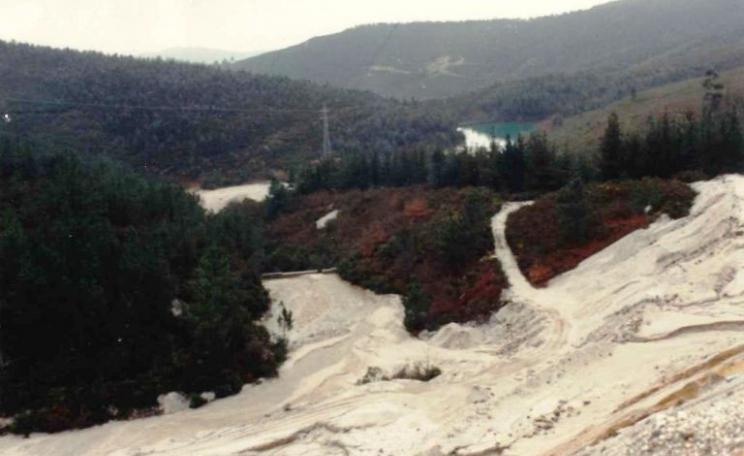Clean air is a basic human right, yet air pollution causes one in every eight deaths across the planet.
There is a huge global inequality in access to information about air quality, a new report released today by OpenAQ, an international NGO based in Washington DC, reveals.
Over half of the world’s population has no access to official government data on air quality, despite the fact that nine out of 10 people breathe air containing high levels of pollutants, according to the World Health Organization (WHO).
The study, entitled ‘Open Air Quality Data: The Global State of Play’ examined 212 countries and found 109 governments (51 percent) are not producing air quality data of any major pollutants, while 103 are. OpenAQ has published a full list of air quality monitoring by Governments, which is publicly available.
Vacuum
The research is being supported by scientists at NASA, who use the OpenAQ system. Combining NASA’s satellite data of air pollution with OpenAQ’s system “has the potential to bring air quality information to everyone in the world.”
This information vacuum is preventing people from demanding action from their Governments to tackle the biggest environmental risk to health, and changing their own behaviour. Outdoor air pollution leads to an estimated 4.2 million deaths every year, more than Ebola, HIV/AIDS, TB and malaria combined (2.7 million).
Support from wealthier nations and individuals is lacking. Globally, it is estimated that more than $150 bn is invested each year by philanthropic foundations[5]. However, foundation funding on outdoor air quality represents just $1 in every $5,000 (0.02 percent) of this total ($30m in 2018).
Clean air is a basic human right, yet air pollution causes one in every eight deaths across the planet.
The report is calling for overseas development funds to be linked to open data and air pollution.
In many highly polluted countries, there are often the least amounts of open air quality data available from governments. OpenAQ analysed 500 million data points from 11,000 air monitoring stations in 93 countries to compare the number of air pollution monitoring stations with levels of PM2.5 (particulate matter - a deadly form of air pollution linked to heart disease, strokes, lung cancer and diabetes), and found that the greater the number of stations, the lower the pollution levels.
Monitoring
Dr Christa Hasenkopf, an atmospheric scientist who founded OpenAQ to provide better access to air quality data, said: “Basic access to air quality data is the first step to improve the air we breathe. By providing access to fully open data, governments can enable the power of civil society - from scientists to policy analysts to activists to tackle the problem together. This will unlock the maximum potential and impact of government data, encourage innovation, and mobilise communities to act.”
OpenAQ provides their API for free to everyone including scientists, software developers, NGOs and campaigners across the world, resulting in 35 million data requests every month.
For instance, scientists at NASA use data from the OpenAQ platform to improve their global air quality forecast system which together with NASA’s satellite data of air pollution has the potential to bring air quality information to everyone in the world, including where there are no surface monitors.
Dr Bryan Duncan, an atmospheric scientist at NASA said: “Open data is one small step to cleaner air. To fight air pollution we need to raise public awareness of its detrimental effects on human health. Making air pollution data easily accessible is critical to this. The OpenAQ platform allows decision-makers to readily see where air pollution efforts are working around the world and where additional efforts are needed.”
Dr Rebecca Garland, principal researcher at the CSIR (The Council for Scientific and Industrial Research), a South African national research council, said: “We can’t solve the problem of poor air quality, without first understanding how big of a problem it is. Using monitoring data in South Africa, we have found that ambient concentrations in our polluted regions were often underestimated in global assessments. This is worrisome as these global assessments estimate already large impacts.
“This report makes it clear that there is a critical need for increased monitoring and open reporting of air pollution data across Africa. Currently, there are large uncertainties in the impact of air pollution in Africa due to a lack of freely available data. Global models try to fill in the gaps, but they can’t get very far without ground-based data to compare to.”
Weather
Scientists in South Africa estimate that air pollution in the country may be nearly four times as high as global models estimate.
The study, published in the Clean Air Journal found that particulate matter (PM 2.5) pollution levels in the Highveld Priority Area and Vaal Triangle Airshed Priority Area were underestimated by a factor of 3.7.
Abid Omar, founder of the Pakistan Air Quality Initiative (PAQI), which provides crowd-sourced air quality information said: "Blue skies and clean air are a barometer of good governance. International funds should be linked with targets towards improving air quality, especially in regions such as Lahore which faces a 5 year loss in life expectancy from hazardous air pollution."
Cities such as Lahore in Pakistan face hazardous levels of air pollution much of the year, resulting in a 5 year reduction in life expectancy and tremendous economic impact. Without access to real-time government data, citizens in Pakistan have to use personal sensors to monitor pollution levels.
Citizens have to fill this data gap, when freely available air quality data should be as much a public right as meteorological weather data. Government provided real-time data using reference-standard equipment with independent third party verification can bring air quality awareness beyond a handful of concerned citizens to the public at large.
Rights
Amrit Sharma, an entrepreneur based in New Delhi, developed the ‘Smokey’ chatbot which uses OpenAQ data to provide simple easy to follow alerts via Facebook, Twitter and Whatsapp to people in 48 countries so they can decide on a high pollution day whether to wear a mask or stay at home.
Dr Sarath Guttikunda, the founder of UrbanEmissions.Info, an independent research research group in India, said: "removing the hurdles of formats, cumbersome access issues, and variations in way data is presented by various countries, OpenAQ makes it easier for the public, researchers, and even public bodies to understand the geographical patterns in air quality over time."
Professor Michael Brauer of the University of British Columbia, Canada, said: “Amongst other global health challenges, air pollution is one where we know the solutions and have strong examples of success. Measuring pollution, making data available and using it to inform action and track progress are essential steps on the path to clean air for all.”
Jane Burston, executive director of the Clean Air Fund, a think tank and philanthropic foundation who supported the research, said: “Clean air is a basic human right, yet air pollution causes 1 in every 8 deaths across the planet. It is clear that governments need to urgently prioritise air pollution action, and providing open data is a key first step.
"The technology to monitor air pollution is readily available, but this report makes it clear that many governments must do more to produce data and make it accessible to their citizens.”
Aid
At least 30 governments generate real-time data but don’t yet share them in a fully open manner. Making these existing data more fully open would affect 4.4 billion people, in countries such as China, India, Russia, Brazil, the Philippines and Japan.
The report was supported by Bloomberg Philanthropies, Clean Air Fund, and ClimateWorks Foundation.
The report calls on governments and policy makers to link overseas aid spending to clean air and data transparency. It says: “Organisations and governments that support air quality programs must ensure that their investment promotes data transparency and openness.
"Doing so - through the criteria outlined in this report – will unlock the full potential applications from the data and lead to improved air quality as a result.”
This Author
Marianne Brooker is The Ecologist's content editor. This article is based on a press release from OpenAQ.







